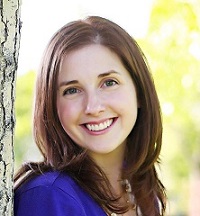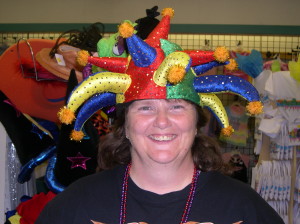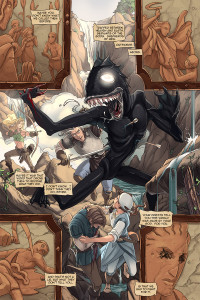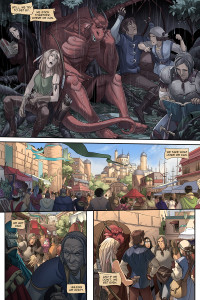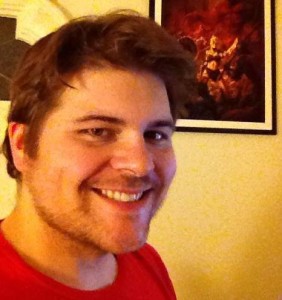2011 was the year I first started writing in earnest. I made it my goal to write a new novel every three months. I wasn’t trying to produce finished products but rather to prove to myself I could write a novel start-to-finish, as well as to experiment with different writing styles and genres to see what worked for me.
I spent seven years in school learning math. One of the nice things about a subject like mathematics is constant and (mostly) objective feedback. A professor will grade your homework assignments and exams, the results of which serves as data to help you improve your process. You learn when you’ve done something right and when you’ve done something wrong.
Not so, in writing. You can spend days hammering away at a piece and end up with something that isn’t clearly good or bad. That’s where I found myself. After writing three practice novels, I was left frustrated. Some days they’d seem promising; other days, hopeless. I don’t mind doing things wrong as long as I know what I’m doing wrong, but with writing I couldn’t always tell the difference. I hated not knowing. I’d approach each writing session with a feeling of dread, no idea if I was moving forward or backward.
Fortunately, I had my best friend Sean.
Sean’s not a heavy reader and didn’t know a ton about the fantasy genre. He was running his own business at the time and worked so many hours I don’t know how he stayed sane. Despite all that, during one of his rare free weekends right around when I was finishing that third novel, Sean chose to spare the time to fly up and visit me. We didn’t go to a movie or play video games. Instead, we spent an entire Saturday in front of a white-board while I went through everything I’d done in trying to write that novel.
I went through my plot in excruciating detail, talking as much about my process as I did my characters. I talked about what I wanted for the novel, an epic fantasy story about a human and dragon raised as foster brothers. About how a promising start fell apart in the third act because I didn’t know what to do with half my side-characters. I talked about my struggles with dialogue and action sequences, and how my plan for a really cool revelation toward the end fizzled because I couldn’t come up with anything even remotely clever.
Throughout it all, Sean asked questions, made comments, gave me his take. Some things he liked, others he didn’t. He’s got great intuition for when something doesn’t feel right, and with his help we were able to pinpoint some missteps I made along the way. In particular we figured out that Coren, one of the main characters, didn’t have clear goals much of the time, which left some key conflicts vague and important scenes weak. I was too close to the novel to see that, but when Sean pointed it out things became much clearer. Yeah, I had made some mistakes, but now I knew why, and I knew I could fix it in the future.
Now, I need to mention, Sean didn’t come up and spend his day talking about my failed novel because I begged him to. It was all his idea. He wanted to come. He knew how important writing was to me and wanted to support me. He didn’t just critique my ideas, he told me which ones he loved. Actually being able to see the excitement in someone else’s face as I described a particular character or conflict felt amazing. It showed me that even though the novel hadn’t worked as a whole, at least it had potential.
That Saturday took me out of my mental rut. It gave me the fuel I needed to move on to the next project, and it helped me remember that no matter how lonely writing sometimes feels, as long as you have good friends, you never truly have to do it alone.

